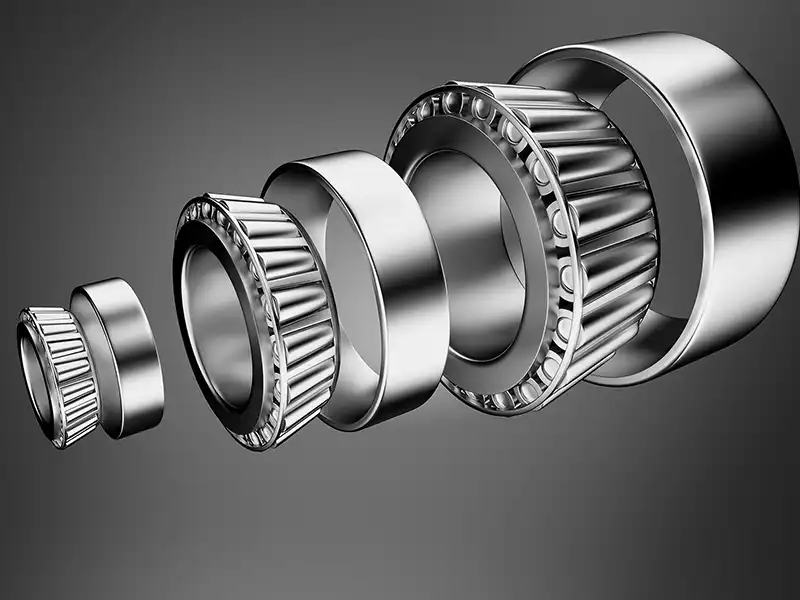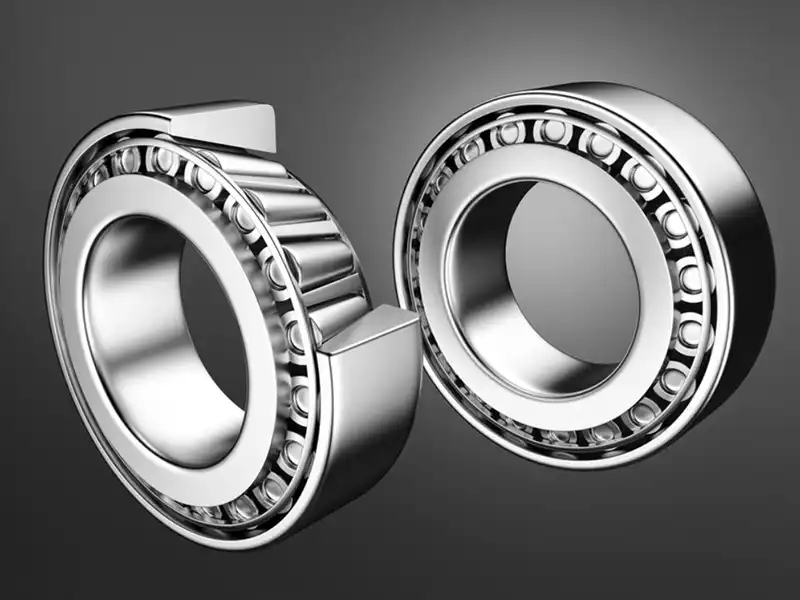Are Precision Tapered Roller Bearings More Expensive Than Standard Bearings?
Precision tapered roller bearings represent a sophisticated engineering solution in the world of mechanical components, standing at the intersection of advanced manufacturing and high-performance mechanical design. The fundamental question that often perplexes engineers, procurement specialists, and industrial professionals is whether these specialized bearings justify their potentially higher cost compared to standard bearings. This exploration delves deep into the intricate world of precision tapered roller bearings, examining their unique characteristics, manufacturing complexities, and the nuanced value proposition they offer across various industrial applications.

What Makes Precision Tapered Roller Bearings Different from Conventional Bearings?
Precision tapered roller bearings distinguish themselves through a remarkable combination of structural design and manufactured excellence that sets them apart from conventional bearing solutions. Unlike standard bearings, these specialized components are engineered with an intricate conical roller and raceway geometry that enables superior load distribution and enhanced mechanical performance.
The fundamental structural difference lies in their unique geometry. Traditional roller bearings typically feature cylindrical rollers that maintain a consistent diameter, whereas precision tapered roller bearings incorporate rollers with a deliberate conical profile. This geometric innovation allows for more sophisticated load management, particularly in scenarios involving combined radial and axial loads. The tapered design enables the bearing to handle complex directional forces more efficiently, making them particularly valuable in high-precision mechanical systems.
Manufacturing precision plays a critical role in differentiating these bearings. While standard bearings might be produced with more relaxed tolerances, precision tapered roller bearings undergo rigorous manufacturing processes that ensure exceptional dimensional accuracy. Advanced computer-controlled machining centers, laser measurement technologies, and sophisticated quality control systems contribute to creating bearings with microscopic tolerances that can be measured in microns.
The material selection for precision tapered roller bearings further elevates their performance characteristics. Manufacturers typically utilize high-grade bearing steels with enhanced metallurgical properties, such as chrome steel (100Cr6), specialized stainless steel alloys, or even ceramic-hybrid compositions. These materials undergo extensive heat treatment processes to optimize their hardness, wear resistance, and structural integrity.
Performance parameters such as internal clearance, surface finish, and rotational accuracy are meticulously controlled. Precision classes like ABEC-P (for precision) and ABEC-T (for super-precision) represent standardized measurements that quantify these bearings' exceptional performance capabilities. A standard bearing might operate with clearances in the range of 10-50 micrometers, whereas a precision tapered roller bearing could maintain clearances as tight as 1-5 micrometers.
The applications demanding such precise bearings span across multiple high-stakes industries. Aerospace engineering, where even microscopic performance variations can have significant consequences, relies extensively on these bearings. Satellite positioning systems, aircraft landing gear mechanisms, and precision robotic equipment represent domains where standard bearings simply cannot meet the required performance benchmarks.
How Do Manufacturing Processes Impact the Cost of Precision Tapered Roller Bearings?

The manufacturing complexity of precision tapered roller bearings directly correlates with their elevated cost structure. Unlike standard bearings produced through more conventional methods, these specialized components require an intricate, multi-stage production process that demands significant technological investment and skilled human expertise.
The initial stages of manufacturing involve extremely precise material selection. High-quality bearing steels undergo rigorous metallurgical screening to ensure consistent material properties. Advanced spectrographic analysis and microstructure examination eliminate potential material inconsistencies that could compromise bearing performance. This meticulous material qualification process represents the first layer of cost escalation.
Machining processes for precision tapered roller bearings employ state-of-the-art CNC (Computer Numerical Control) equipment capable of achieving tolerances within micrometers. Multi-axis machining centers with laser measurement systems replace traditional manual manufacturing techniques. These sophisticated machines can cost millions of dollars, and their operational expenses significantly contribute to the final product's pricing.
Heat treatment represents another critical manufacturing stage that influences cost. Precision bearings undergo specialized thermal processing to enhance material hardness, reduce internal stress, and optimize microstructural characteristics. Controlled atmosphere furnaces, precise temperature management systems, and advanced quenching technologies ensure uniform material transformation. Each heat treatment cycle might involve multiple stages of heating, soaking, and controlled cooling, consuming substantial energy and requiring advanced technological infrastructure.
Grinding and finishing processes for precision tapered roller bearings are equally complex. Ultra-precision grinding machines with diamond-coated wheels can create surface finishes with roughness measurements in nanometers. These machines require frequent calibration, specialized coolants, and expert operators who understand the nuanced interactions between machining parameters and material responses.
Quality control represents another significant cost factor. Each precision tapered roller bearing undergoes comprehensive inspection using coordinate measuring machines (CMM), optical comparators, and advanced profilometers. These inspection processes can consume more time and resources than the actual manufacturing stages, with individual bearings potentially undergoing hours of meticulous examination.
The human expertise required in designing, manufacturing, and quality controlling these bearings further escalates costs. Highly skilled engineers with specialized knowledge in tribology, material science, and advanced manufacturing techniques command premium compensation. Training programs, continuous skill upgrades, and maintaining a workforce capable of handling complex manufacturing processes contribute to the overall cost structure.
Are the Advanced Performance Characteristics Worth the Higher Price Tag?

Evaluating the value proposition of precision tapered roller bearings necessitates a comprehensive understanding of their long-term performance benefits that potentially offset their initial higher procurement costs. While the upfront investment might appear substantial, these bearings can deliver significant economic advantages across extended operational lifecycles.
Reliability emerges as a paramount consideration when assessing the economic justification. Precision tapered roller bearings demonstrate substantially lower failure rates compared to standard bearings. In critical industrial applications like wind turbine generators, aerospace systems, and high-speed manufacturing equipment, a single bearing failure can result in catastrophic operational disruptions. The potential cost of unexpected downtime far exceeds the initial price differential between standard and precision bearings.
Efficiency improvements represent another compelling economic argument. The superior load distribution and reduced friction characteristics of precision tapered roller bearings translate into measurable energy savings. In large-scale industrial systems, even a 1-2% improvement in rotational efficiency can yield substantial energy cost reductions. For instance, in continuous manufacturing processes operating 24/7, these efficiency gains can result in thousands of dollars of annual energy savings.
Longevity and maintenance requirements provide additional economic justification. Precision tapered roller bearings typically offer extended service intervals and demonstrate slower wear progression compared to standard bearings. Where conventional bearings might require replacement every 6-12 months, precision variants can potentially operate effectively for 2-3 years under similar operational conditions. The cumulative maintenance cost savings and reduced replacement frequency can offset their higher initial procurement expenses.
Advanced performance characteristics extend beyond mere mechanical considerations. In industries requiring extremely precise positioning and minimal vibration, such as semiconductor manufacturing, medical imaging equipment, and precision robotics, the marginal cost increase becomes almost negligible when compared to the performance benefits delivered.
Conclusion
Precision tapered roller bearings represent a sophisticated engineering solution that transcends traditional bearing technologies. While their initial cost may appear higher, a nuanced evaluation reveals their potential for delivering superior long-term value across multiple industrial domains.
Luoyang Huigong Bearing Technology Co., Ltd. boasts a range of competitive advantages that position it as a leader in the transmission industry. Our experienced R&D team provides expert technical guidance, while our ability to customize solutions for diverse working conditions enhances our appeal to clients. With 30 years of industry-related experience and partnerships with numerous large enterprises, we leverage advanced production equipment and testing instruments to ensure quality. Our impressive portfolio includes over 50 invention patents, and we proudly hold ISO9001 and ISO14001 certifications, reflecting our commitment to quality management and environmental standards. Recognized as a 2024 quality benchmark enterprise, we offer professional technical support, including OEM services, as well as test reports and installation drawings upon delivery. Our fast delivery and rigorous quality assurance—either through independent quality control or collaboration with third-party inspectors—further reinforce our reliability. With many successful collaborations domestically and internationally, we invite you to learn more about our products by contacting CHG at sale@chg-bearing.com or calling our hotline at +86-0379-65793878.
References
1. SKF Bearing Handbook, 2020 Edition
2. ABMA (American Bearing Manufacturers Association) Technical Publication, 2021
3. ISO/TS 16949:2009 Quality Management Standard
4. Journal of Tribology, Advanced Bearing Technologies Review, 2022
5. Machinery Lubrication Magazine, Precision Bearing Performance Analysis, 2021
6. International Journal of Mechanical Engineering, Bearing Technology Advancements, 2020
7. NASA Technical Reports Server, Aerospace Bearing Performance Standards
8. Society of Manufacturing Engineers, Precision Manufacturing Techniques
9. Advanced Materials and Manufacturing Processes Journal, 2022
10. International Conference on Mechanical Engineering Proceedings, Bearing Innovation Symposium

